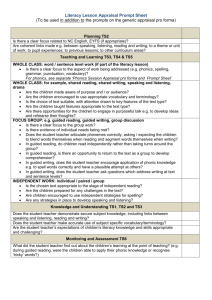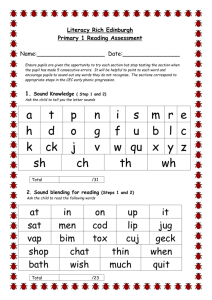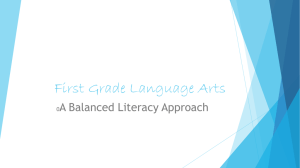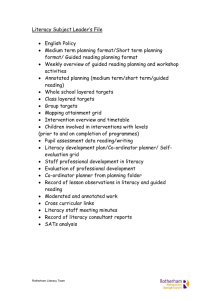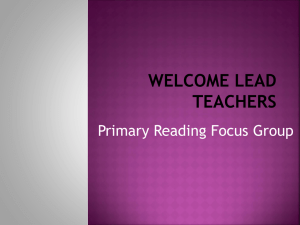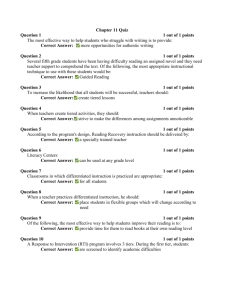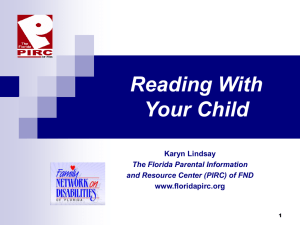Reading policy - North Walney Primary Nursery & Pre
advertisement
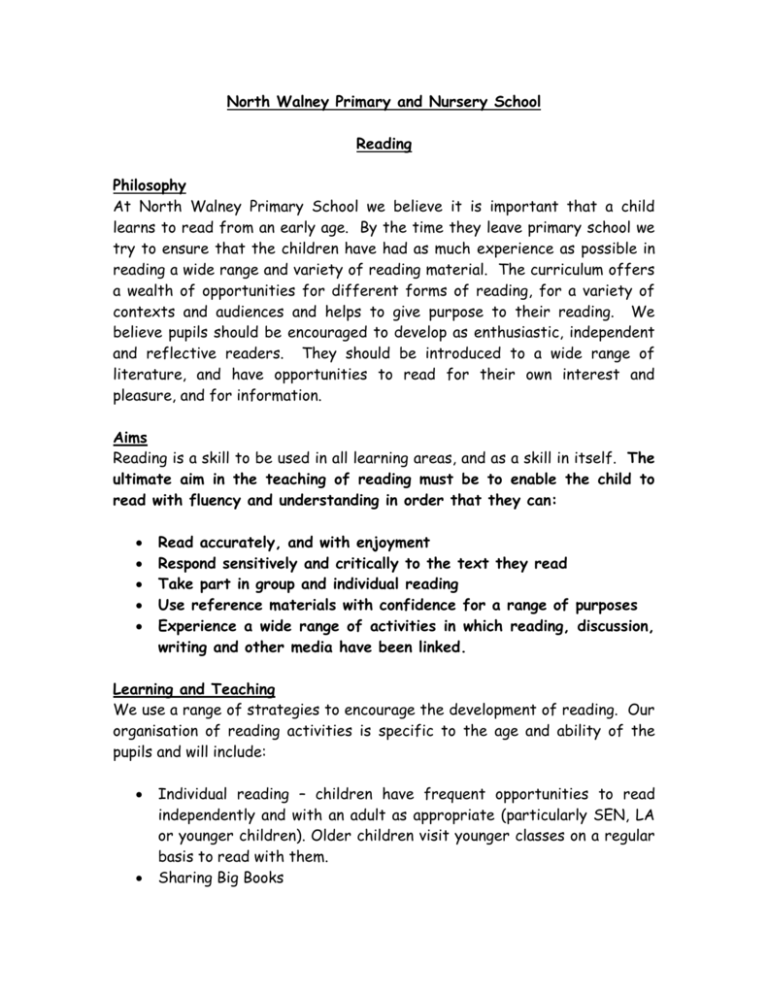
North Walney Primary and Nursery School Reading Philosophy At North Walney Primary School we believe it is important that a child learns to read from an early age. By the time they leave primary school we try to ensure that the children have had as much experience as possible in reading a wide range and variety of reading material. The curriculum offers a wealth of opportunities for different forms of reading, for a variety of contexts and audiences and helps to give purpose to their reading. We believe pupils should be encouraged to develop as enthusiastic, independent and reflective readers. They should be introduced to a wide range of literature, and have opportunities to read for their own interest and pleasure, and for information. Aims Reading is a skill to be used in all learning areas, and as a skill in itself. The ultimate aim in the teaching of reading must be to enable the child to read with fluency and understanding in order that they can: Read accurately, and with enjoyment Respond sensitively and critically to the text they read Take part in group and individual reading Use reference materials with confidence for a range of purposes Experience a wide range of activities in which reading, discussion, writing and other media have been linked. Learning and Teaching We use a range of strategies to encourage the development of reading. Our organisation of reading activities is specific to the age and ability of the pupils and will include: Individual reading – children have frequent opportunities to read independently and with an adult as appropriate (particularly SEN, LA or younger children). Older children visit younger classes on a regular basis to read with them. Sharing Big Books Story time, including reading class novels Home/School reading Phonic and key word activities – see letters and sounds review document appendix 1 for further guidance on the implementation of phonics and key words as children begin to read. Also Appendix 2 – Early Years literacy. Appendix 6 – tricky words and HFW reading order. Shared reading – whole class, modelled Guided Reading – each group within a class takes part in a guided reading session with an adult once a week. The focus/objective for each group is taken from the Guided Reading group assessment sheets or related to the current Literacy focus for that week. Objectives are tailored to the group’s needs or areas for development. Planning Teachers plan for reading using Early Learning Goals and NLS framework as the core scheme of work, and the English National Curriculum to ensure balance and progression across the Key Stages. The teaching of phonics follows the letters and sounds document and is supported by phonically decodeable readers. Oxford reading tree has been the main core of learning to read in Reception but new phonically decidable books have been bought to support phonic skills. How these sets of books will be used is being developed at present. See appendix 3 – reading book order. Reading from Year 1 onwards uses a range of books organised into book bands. Reading takes place within the literacy lessons as well as guided reading sessions outside the literacy hour and in a cross curricular dimensions. Home/School links We believe it is important that children are able to read on a frequent basis. Parents can play a vital role in the support of reading and to encourage this parents are invited to meetings to find out how to support their child’s reading development. Children are encouraged to read at home. In the Nursery class parents can borrow books to take home. Throughout school a home school reading record is used to inform parents of their child’s next steps and parents can inform the staff of the steps they have taken. When appropriate (Reception and Year 1), children will take words home to learn and on occasions sentence building with word cards. The book that the children take home to read will be one that they can read with 95-100% accuracy whereas the book that they many read with a teacher during Guided Reading will be at a higher level to ensure challenge. Assessment In the first instance, assessment of pupil progress is ongoing by the class teacher as part of formative assessment. In addition to this, all Key Stage 2 pupils are assessed using the Burt reading test. Teachers are required to keep a record of the children’s achievements during guided reading sessions – these records are less formal but must inform future planning for Literacy and Guided Reading. Formal, summative assessments are carried out at the end of Key Stage 1 and 2 as well as optional SATS which take place at the end of Yrs 3,4 and 5. Reading skills are recorded on the Lancashire Literacy teams sheets ‘Assessment and progression in reading skills’ – Appendix 7. See appendix 4 for a clear outline of expectations in assessment in each year group and the link to tracking. Appendix 9 shows the termly targets children need to meet in Reception, Year 1 and 2 to be ontrack to reach expected levels of achievement in the year 2 SATs. Phonic assessment will start in Nursery and continue frequently throughout Reception and Year 1. For children making good progress this will be through reading and writing tasks for those not making the expected progress more rigorous identification of strengths and weaknesses will be conducted. The number of HFW and tricky words that the children can read will also provide a measure of progress. Phonic achievements for groups and some individuals will be passed to the next class teacher to ensure a smooth transition between year groups. Equal Opportunities We aim to ensure that all pupils have equal access to the teaching of reading at a level appropriate to their age and needs. Children enter our nursery and school with levels of attainments significantly below National expectations so we rigorously plan to develop the social skills and speaking and listening skills that they will need to access the reading curriculum. Children failing to achieve national expectations in reading will be identified early and will receive support and intervention to make good progress. In Year 1 ELS is used to boost those children who are working just below the expected level for their age group. Children who are not making expected progress are supported through a Reading Intervention Package or the Life Boat scheme. Two TA’s are trained to deliver these programmes. Resources Each class has a range of age/ability appropriate resources and access to centrally stored resources including shared and guided texts and phonic resources. Guided Reading books are stored in the Year 2 classroom cupboard and the Year 5 classroom. A wide range of fiction and non-fiction big books are stored in the library. Children are encouraged to value and respect resources and use them appropriately. The school library has a Dewey based system and contains a selection of non – fiction books. Fiction books are stored in classroom libraries. This policy was agreed and adopted by the staff and Governors in June 2012 It will be reviewed in June 2013.
